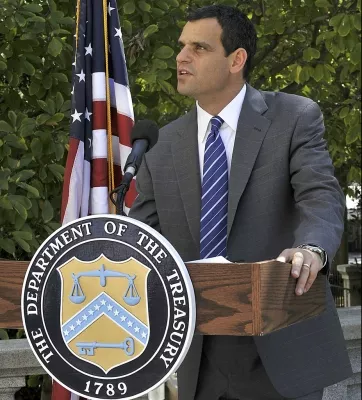Note
In the near term, the Obama administration does not yet need to engage Senators Menendez, Kirk, and Schumer on the details of their proposed Nuclear Weapon Free Act of 2013. The upcoming congressional recess and the protection of friendly senators (including Senate Majority Leader Harry Reid and Chairman of the Senate Banking and Finance Committee Tim Johnson) are likely to delay consideration of the bill for the time being. However, congressional support for sanctions legislation against Iran has strong bipartisan support, and pressure for additional legislation is likely to grow if – as seems likely – it becomes apparent in coming months that negotiations between the P5+1 and Iran on a final agreement are not faring well. In the event that the Obama administration is forced to enter into negotiations with Congress on new sanctions legislation, the White House is likely to have several objections to the proposed Senate legislation, especially on the certification requirements to waive or suspend sanctions.
See my previous post for a summary and interpretation of the text of the sanctions bill. In this post I address the Obama administration's most likely objections.
The sponsors of the Nuclear Weapon Free Iran Act of 2013 argue that the threat to reimpose existing sanctions and levy additional sanctions is necessary to pressure Iran to comply with the Joint Plan of Action and make additional nuclear concessions required for a final agreement. No doubt, effective enforcement of current sanctions and the threat of additional sanctions are essential to maximize the administration’s bargaining leverage with Iran.
Nonetheless, the Obama administration opposes the introduction of new sanctions legislation because it could harden domestic Iranian opposition to President Rouhani’s efforts to negotiate a settlement and ultimately give Iran grounds to blame the U.S. if final negotiations fail. While it seems unlikely that Iran would withdraw from the Joint Plan of Action in response to legislation that threatens (but does not yet impose) new sanctions, the Iranian Majlis is almost certain to adopt parallel legislation that threatens to escalate nuclear activities in the event that an acceptable final agreement is not achieved.
In addition, the administration is likely to object that some of the Senate bill’s required certifications unduly restrict the president’s ability to conduct foreign policy and dictate unrealistic conditions for a diplomatic settlement. In the first case, some of the required certifications are inherently subjective (such as the requirement to attest to Iran’s “good faith” in the negotiations) or unclear (such as certifications related to undefined terms like “illicit nuclear activities,” “nuclear weapons capability” and “nuclear breakout capability”).

The White House will likely also protest that the legislation sets an eight-month deadline for achieving a final agreement and undermines a provision in the Joint Plan of Action that allows the P5+1 and Iran to renew the initial six-month negotiation for an additional six months. Given the vast differences between Iran and the U.S. on the terms of a final agreement, it seems highly unlikely that a final agreement can be reached within six months. At a minimum, an additional six months is likely to be required for further negotiations, even to achieve another interim deal, short of a final one, that includes further nuclear constraints and additional sanctions relief.
Administration officials are likely to note that the certifications required to suspend sanctions in a final agreement may not be achievable. In particular, the Joint Plan of Action concedes that Iran will have a “mutually defined enrichment program with mutually agreed parameters consistent with practical needs.” One of the central issues in the negotiations for a final agreement will be the precise physical limits on the scope and scale of Iran’s enrichment program, in terms of numbers and types of centrifuges, and the duration of these limits. Under the Senate bill, however, the president must certify that the final agreement requires Iran to “dismantle” its enrichment facilities and come into compliance with numerous UN Security Council resolutions that require Iran to suspend all enrichment-related activities. In other words, it is unclear that the U.S. could suspend sanctions in any final agreement that allowed Iran to retain even limited or residual enrichment capabilities.
Finally, the administration will object that the legislation only allows for a year-to-year suspension of sanctions rather than lifting or repealing sanctions, which means that Iran is likely to insist on a similar year-to-year commitment to restrict nuclear activities.
Samore, Gary. “Anticipating objections to the Nuclear Weapon Free Iran Act.” December 19, 2013


